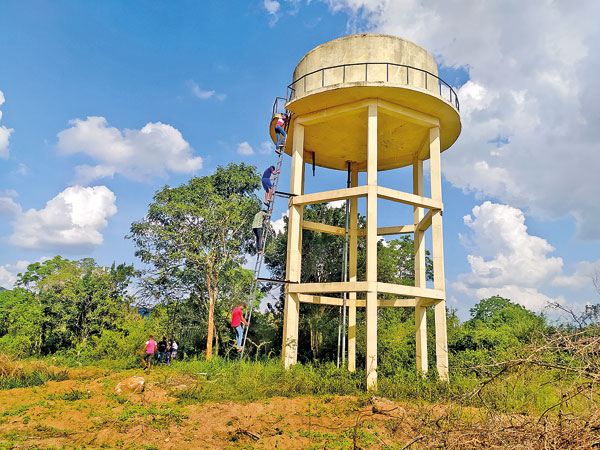News
Dropout rate rises as online teaching fails rural pupils
The Government’s failure to adopt an effective plan to take classroom learning to the homes of students during pandemic times has resulted in many children dropping out of schools, the main education union said.
Reports are coming in that Ordinary and Advanced Level students, predominantly from rural areas in the plantation sector, have left school in search of jobs, it said.
The Ceylon Teachers Union (CTU) said children disillusioned with the education system are opting to work and earn money to supplement their family budgets during these difficult times.
The children are taking up menial jobs in factories, sales outlets and delivering food in Colombo and other cities where jobs can be found, the union’s General Secretary, Joseph Stalin, said.
He said the online classes and learning programmes conducted via television have been a failure among students in rural Sri Lanka.
The Education Ministry, he claimed, has not been successful in taking lessons to students in the 15 months that have passed since the pandemic started.
“The only progress made is the plan to switch the dates of the Ordinary Level and Advanced Level exams to minimise waiting time for students to enter Advanced Level classes and universities,” he said.
In a recent decision, the ministry announced a plan to hold the Ordinary Level (O/L) exams in August and Advanced Level (A/L) exams in December, which would give a nine-month advantage for O/L students, helping them to finish school early.
Waiting times for university entrants will be also reduced because the ministry will expedite A/L results, releasing them a few weeks from the final day of the exams.
Re-scrutiny of papers and determination of districts of applicants to grant admission to universities will also be expedited.
The CTU, while welcoming the changes, said that with schools being closed for the whole of last year the ministry should have formulated a concise syllabus for the benefit of students who have lost valuable classroom studies.
Even this year, in the first term schools functioned at only half or a third of classroom capacity due to the necessity for social distancing.
Mr. Stalin said online studies did not give a level playing field to rural students because of poor data coverage in their areas. Transmission of lessons via television channels had also proved futile as those areas lack adequate reception coverage.
Households that have two or more school-going children are disadvantaged when parallel classes are held for different grades as most of the homes have only a single television or a mobile phone, the CTU Secretary said.
His suggestion that the ministry gain assistance from the National Institute of Education (NIE ) and the National Education Commission (NEC) to formulate a more concise syllabus for O/L and A/L students sitting exams this year was rejected by Ministry Secretary Professor Kapila Perera, who said there were no plans to change the syllabus.
He said the ministry was doing its utmost to get lessons across to students.
“We are using WhatsApp, Zoom, YouTube and the television media to take lessons to students,” he said.
“Also, we are monitoring the progress made by making regular inquiries.”
He agreed, however, that the media used were insufficient to cover all syllabuses. “We have around 54 subjects together with the basket subjects and need more channels to telecast lessons,” he said.
“Negotiations are being carried out to have more television channels for this purpose.”
Meanwhile, teachers in provincial schools are complaining that they are under stress as provincial education departments are pushing them to have online classes for students.
“They said they are unable to conduct classes as the mobile data coverage in the areas they live in is very poor. In addition, they end up paying huge sums on their phone bills,” Mr. Stalin claimed.
CTU Nuwara Eliya District Secretary V. Indraselvan said teachers who are poorly paid cannot afford the additional expenses. He called on the government to provide data coverage to schools so that teachers can work from schools to send out lessons.
The Education Forum Sri Lanka (EFSL), among its several recommendations to manage the present situation has called on the ministry to use all 246,952 teachers serving in public schools to monitor education disseminated online and on media channels.

File pic: Students following online classes are seen climbing a village water tank tower to get signals to their mobile devices. Pic by Hiran Priyankara
It recommends using teleconferencing as a better way of taking lessons to children as this could be done even with analogue phones. A survey has revealed that 96 per cent of households in Sri Lanka possess mobile phones.
Other suggestions include vaccinating all teachers on a priority basis and testing for infection in students coming from high-risk areas.
The EFSL also recommends decentralising power to make decisions on opening and closing schools at provincial and divisional levels so that an entire school does not have to be shut down because of a single infected case. Instead, a classroom or a section could be closed to avoid the spread of coronavirus, it said.

